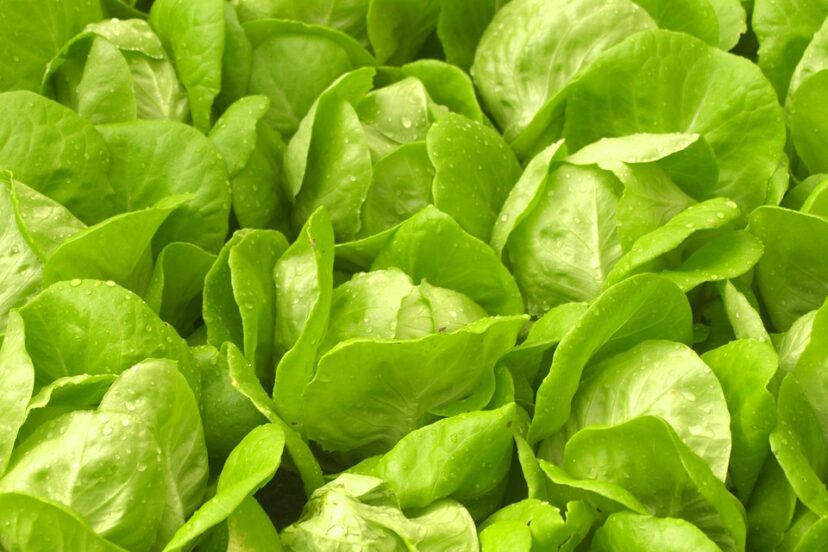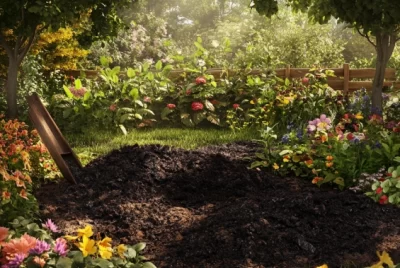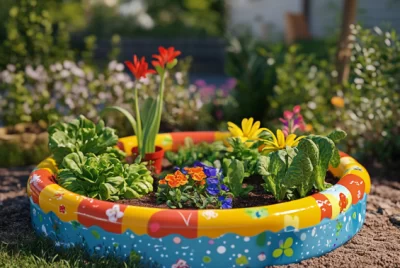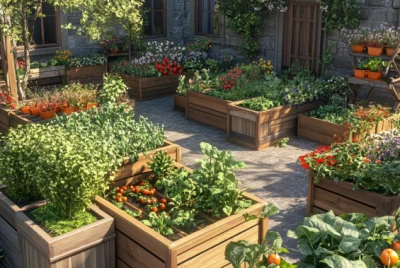Outdoor Hydroponics: Unveiling the Future of Gardening
Introduction to Outdoor Hydroponics
Outdoor hydroponics is growing in popularity as hydroponics becomes more available for home and commercial gardening. In this article, we will discuss outdoor hydroponics in today’s gardening world.
Defining Hydroponics
I’ve always been fascinated by the innovative ways we can grow plants. And one method that truly stands out is hydroponics. In a nutshell, hydroponics is a technique of growing plants without soil, using mineral nutrient solutions in an aqueous solvent. This means plants can thrive in water enriched with the necessary nutrients they typically derive from soil.
The Rise of Outdoor Hydroponics
Traditionally, hydroponics has been associated with indoor gardening, often in controlled environments. But there has been a growing trend in outdoor hydroponic gardening. This approach combines the benefits of hydroponics with the natural elements of the outdoors, creating a harmonious blend of technology and nature.
The Essential Components of Outdoor Hydroponics
Types of Hydroponic Systems
Outdoor hydroponic systems come in various forms, each with its unique advantages. The most common types include the deep water culture (DWC), nutrient film technique (NFT), and the ebb and flow system. Each system has its specific way of providing nutrients and oxygen to the plants, catering to different plant types and garden sizes.
Key Equipment and Supplies
Setting up an outdoor hydroponic system requires some essential equipment. You’ll need a reservoir for the nutrient solution, a pump for circulation, and an aeration system to keep the roots oxygenated. Additionally, choosing the right growing medium—like rockwool, clay pellets, or peat moss—is crucial for your plants’ support and nutrition absorption.
Advantages of Outdoor Hydroponics
Enhanced Plant Growth
One of the most significant benefits I’ve seen in outdoor hydroponics is the accelerated plant growth. Plants in hydroponic systems often grow faster and larger compared to traditional soil gardening, as they can access nutrients more efficiently.
Water and Space Efficiency
A major advantage of outdoor hydroponics is its efficient use of water and space. Unlike traditional gardening, hydroponics recirculates water, drastically reducing consumption. This is not just eco-friendly but also cost-effective. Moreover, because hydroponic systems can be set up vertically, they require less space, making them ideal for urban environments where space is a premium.
Eco-friendly Gardening Solutions
Outdoor hydroponic systems align beautifully with sustainable gardening practices. By eliminating the need for soil, they prevent soil erosion and reduce the dependence on chemical fertilizers. This method of gardening is a step towards a more sustainable and environmentally conscious approach to food production.
Navigating the Challenges of Outdoor Hydroponics
Weather and Climate Considerations
While outdoor hydroponics has many benefits, it also comes with its own set of challenges. Weather and climate play a significant role. Excessive rain can dilute nutrient solutions, while extreme heat can stress plants and evaporate water. As an advisor, I always recommend careful monitoring and adjustments to ensure the system remains balanced despite weather changes.
Pest and Disease Management
Contrary to popular belief, outdoor hydroponic systems aren’t immune to pests and diseases. In fact, the moist environment can attract certain pests and fungi. However, with vigilant monitoring and the use of eco-friendly pest control methods, these issues can be effectively managed.
Technical Knowledge and Maintenance
Running a successful outdoor hydroponic garden requires some technical knowledge and regular maintenance. It’s vital to regularly check pH levels, nutrient concentrations, and system integrity. This might seem daunting at first, but with experience, it becomes an intuitive part of gardening.
Setting Up Your First Outdoor Hydroponic Garden
Choosing the Right Location
The first step in setting up an outdoor hydroponic system is selecting an appropriate location. Look for a spot that receives ample sunlight, has protection from extreme weather, and is close to a water source. This will ensure your plants get the right amount of light and make system maintenance easier.
Selecting Suitable Plants
Not all plants are suited for hydroponic systems. Leafy greens like lettuce, spinach, and herbs often thrive in these settings. If you’re starting out, it’s best to begin with these easier-to-grow varieties before moving on to more demanding plants.
Installation Tips and Tricks
When installing your hydroponic system, ensure all components are properly connected and the system is stable. Start with a smaller system to gain experience before scaling up. Remember, the key to a successful hydroponic garden lies in attention to detail and regular care.
Best Practices for Successful Outdoor Hydroponics
Nutrient Management
Managing nutrients is a critical aspect of outdoor hydroponic gardening. It’s important to provide a balanced nutrient solution tailored to the specific needs of your plants. Regularly testing and adjusting the nutrient levels ensures that plants receive the optimal mix for growth.
Regular System Checks and Balances
Regular monitoring of your hydroponic system is essential. Check for any leaks, blockages, or equipment malfunctions. Keeping a close eye on the system helps prevent minor issues from turning into major problems.
Seasonal Adjustments and Care
Outdoor hydroponic systems require adjustments with changing seasons. This might involve altering the nutrient mix, adjusting the water temperature, or changing the plant varieties to suit the season. Being proactive about these changes ensures the health and productivity of your garden throughout the year.
The Economic Aspect of Outdoor Hydroponics
Cost-Benefit Analysis
While the initial setup cost for an outdoor hydroponic system can be higher than traditional gardening, the long-term benefits often outweigh the initial investment. Increased yields, lower water usage, and reduced need for pesticides contribute to a more cost-effective approach over time.
Potential for Commercial Ventures
Outdoor hydroponics presents significant opportunities for commercial ventures. Its scalability and efficiency make it a viable option for entrepreneurs looking to venture into sustainable agriculture.
The Future of Outdoor Hydroponics
Technological Advancements
The future of outdoor hydroponics is intertwined with technological advancements. Innovations in automated nutrient delivery systems, climate control, and monitoring software are set to further enhance the efficiency and productivity of hydroponic gardens.
Environmental Impact and Sustainability
As we move towards more sustainable food production methods, outdoor hydroponics stands out as a promising solution. Its minimal use of water and land resources, along with the reduced need for chemicals, positions it as a key player in the future of eco-friendly agriculture.
Conclusion
Summary of Key Points
Outdoor hydroponics is a fascinating and efficient method of gardening that blends technology with nature. Its benefits range from efficient water use and space-saving designs to increased plant growth and eco-friendliness. While there are challenges, they are outweighed by the numerous advantages.
Final Thoughts and Encouragement
For anyone considering a foray into outdoor hydroponics, I encourage you to embrace the learning curve and enjoy the journey. The rewards, both personal and environmental, are immense.
FAQs
What is the best plant to start with in outdoor hydroponics?
Leafy greens like lettuce and spinach are ideal for beginners due to their low maintenance and quick growth.
How much does it cost to set up outdoor hydroponics?
The cost varies depending on the system size and complexity, but a basic setup can start from a few hundred dollars.
Can outdoor hydroponic systems withstand extreme weather?
Yes, with proper planning and protective measures, they can be adapted to various weather conditions.
Is outdoor hydroponics suitable for organic gardening?
Absolutely, outdoor hydroponics can be used for organic gardening by choosing organic nutrients and pest control methods.
How often should I check and adjust my hydroponic system?
Regular weekly checks are recommended, with more frequent monitoring during the initial setup phase or when making changes to the system.
How do I protect my outdoor hydroponics from pests?
Employing natural pest control methods such as beneficial insects, neem oil, or environmentally friendly pesticides can help protect your hydroponic garden. Regular inspections and maintaining a clean environment also reduce the likelihood of pest infestations.
Can I convert my existing soil garden into a hydroponic system?
Yes, you can convert a soil garden to a hydroponic system. The process involves removing the soil and setting up a suitable hydroponic structure, such as a deep water culture or ebb and flow system. However, it’s important to research and plan thoroughly to ensure a successful transition.
What is the average yield increase with outdoor hydroponics compared to traditional soil gardening?
While the exact yield increase can vary depending on the plant type and system used, outdoor hydroponics typically offers a 20-25% higher yield than traditional soil gardening. This is due to the more efficient nutrient delivery and controlled growth conditions.
Can outdoor hydroponic systems operate completely off-grid?
Yes, outdoor hydroponic systems can be designed to operate off-grid using solar panels or wind turbines for power. This makes them ideal for remote or rural areas without reliable access to the electrical grid. However, setting up an off-grid system requires careful planning to ensure consistent power for pumps and other system components.




